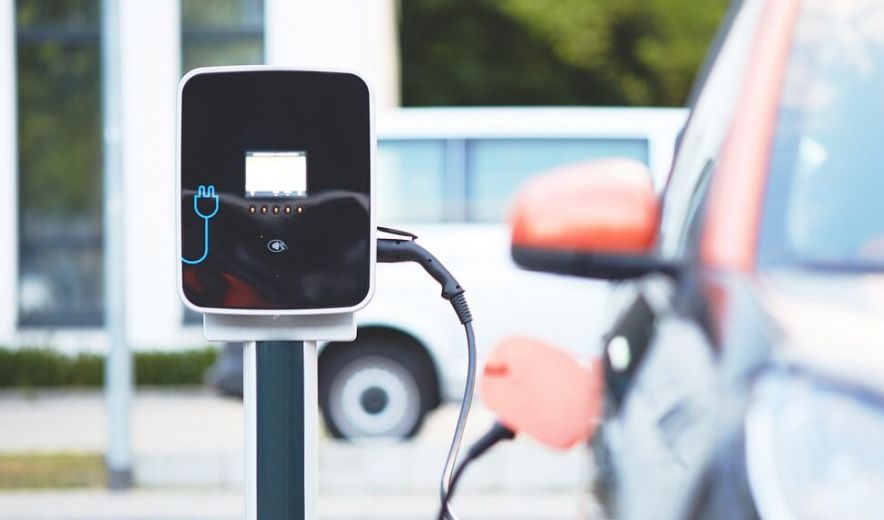There are over 1.3 million electric cars registered on UK roads, and that number is increasing every month. EVs provide many benefits for drivers including lower tax, reduced fuel costs and a smoother driving experience.
But are they cheaper to insure than petrol or diesel cars? As we approach the 2035 deadline on the sale of cars with combustion engines it is important for all road users to be aware of what the difference is with EV insurance.
Understanding electric car insurance
With fluctuating fuel prices in recent years, and the environmental damage caused by burning petrol and diesel, electric cars are generally seen as a more affordable-to-run option and a more responsible choice for the planet.
When it comes to insuring any vehicle, no matter how it is powered, the principles are the same. However, insurance quotes for electric vehicles (EVs) can be higher than their combustion counterparts, partly due to electric car models being newer to market.
This means spare parts may not be as readily available, and EVs may also need specially trained mechanics to work on them. Insurance costs for electric cars are now falling, but not enough to match quotes for equivalent petrol or diesel cars just yet.
Some car insurance policies have considerations specific to EVs. These include cover for charging cables, adaptors and wall boxes for accidental damage, fire, and theft.
Electric car insurance policies may also feature battery cover under the same provisions, even if the battery is leased separately from the car itself as is the case in some older EVs.
Insurers can also cover over-the-air (OTA) software updates, and if you choose an optional hire car benefit, an electric or hybrid courtesy car may be provided – if one is available – while your EV is in for repair. Legal cover may also be helpful if, for example, somebody trips over a charging cable while it is plugged into your car.
Although there are no set differences between electric and ‘fossil fuel’ car insurance, there are some factors that you may want to consider before you decide to purchase an EV.
Do I need electric car insurance?
Yes, you need insurance to drive any type of car on the road in the UK. It is illegal to drive without the appropriate cover in place.
There are three types of policies you can choose from that offer the minimum cover required by law, plus policies that offer more extensive cover. These include:
Third party
This is the legal minimum requirement for car insurance. It covers you for damage caused to other road users and property where you are at fault.
Third party, fire, and theft
This is the next level of car insurance. It covers third parties (see above), along with fire damage to your own vehicle and theft.
Comprehensive
This option covers you for third party, fire, and theft, plus any damage caused to your own vehicle if an accident occurs.
- RAC electric car insurance – with battery cover included as standard
- Types of electric vehicles – EVs explained
- Should I get a hybrid, plug-in hybrid, or electric car?
How is electric car insurance calculated?
All car insurance policies follow the same set of principles when it comes to deciding the price of your premium. These factors will vary with each individual provider, but most will consider the following, plus more factors:
- How long you have been driving for
- Your age, occupation and where you live
- Where you store your car when it’s off the road (e.g., a driveway or a garage)
- What you’ll be using the car for and how many miles it will be driving a year
- The make and model of car you drive, any modifications made, and its value
- Your driving history (including any previous claims made)
With so much to take into consideration, you should try to be as honest and as accurate as possible when answering the questions.
If you find the premium is above what you can afford, try playing around with the voluntary excess. However, bear in mind you will have to pay this excess in the event of a claim.
- Electric car leasing explained – EV financing vs buying
- How much does it cost to charge an electric car?
- 2030 ban – is it worth buying an EV now?
What doesn’t electric car insurance include?
Car insurance policies can offer breakdown cover as an optional extra, or sometimes at no extra cost.
There is an ever-growing number of EV charging stations all over the UK, but being caught without power remains a very real concern for many electric car drivers.
This is therefore something that electric car drivers should definitely consider. Breakdown cover offers reassurance that in the event of a breakdown, your vehicle can be repaired or recovered, and that you can get back up and running again as soon as possible.
The RAC offers an optional EV Boost recharge service, which will give you around 10 miles of charge if your EV breaks down. This should be enough to get the stranded car to the nearest charge point.

SALE – up to 40% off*
Roadside & Recovery from £5.29 a month*
• Cheaper than AA Price Promise or we’ll beat by 20%^
• We get to most breakdowns in 60 mins or less
• Our patrols fix 4/5 breakdowns on the spot

What insurance group will my electric car be in?
All cars are put into groups to help insurance providers calculate what to charge for your premium. These insurance groups are set by the Association of British Insurers and administered by Thatcham Research.
It categorises new cars into groups from 1 to 50. The lower the group, the cheaper your insurance will be - in theory.
Each insurance group will depend on the make and model of the car, how much power it has, and other risks such as the likelihood of theft. Being electric is not necessarily a factor, but electric cars can often have higher performance than their petrol or diesel equivalents.
Thatcham Research looks into:
New car values
The more expensive your car is to purchase, the more desirable it is to criminals.
Repair costs for damaged parts
The lower the cost of your car’s parts, the lower your insurance premium will be. You may find that as electric cars are still fairly new, their parts could be more expensive to repair or replace.
Parts are more specialised for EVs as well. You may find batteries are very expensive, although some suppliers do offer their own battery leasing schemes.
Car performance
The acceleration, power and performance of every car will be assessed and taken into consideration when assigning an insurance group.
Safety and security
Security and safety are also considered when assigning an insurance group to a make and model of vehicle.
If your car is fitted with features such as an alarm or an autonomous emergency braking system, this may help give move it into a lower insurance category.
What are the issues of insuring an electric car?
The specialised parts needed to repair electric cars can be expensive and may require specialist mechanics to fit them. Unfortunately, this is something that can increase your insurance premium.
If you own an electric car, it’s important you get the right insurance and breakdown policy, so you know you’re financially covered in case of unforeseen events.
The RAC is the UK’s first breakdown assistance company to introduce a mobile charging unit for electric vehicle owners who have run out of charge.
We are the number one provider of breakdown cover for electric vehicles, and our All-Wheels-Up recovery system also allows our patrols to safely rescue electric cars with no need for a flatbed.
Find out more about RAC EV Boost.
Black Box Insurance
Want to pay less for your car insurance? Whether you’re a new driver or just looking to reduce costs, we can help.












